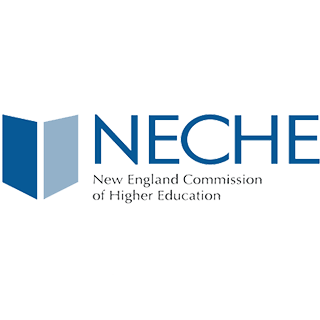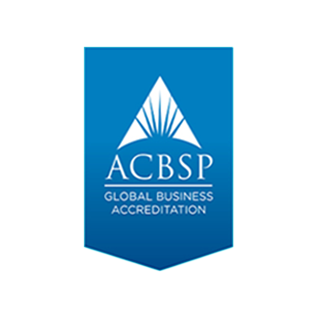For Jazzmen Shipp, Earning a Degree Changed Everything
Business | 2min Read

The Operations and Supply Chain Management Graduate Certificate online at Southern New Hampshire University is designed to introduce you to key concepts, strategies and processes used in the production of goods, from securing raw materials to distributing them to customers.
An operations and supply chain management graduate certificate from SNHU empowers you with the strong foundation you'll need to pursue a new career, advance in your current career or further your studies to gain new skills.

The program's coursework provides excellent insight into the warehouse management decision-making processes used to successfully bring goods to market. You'll be introduced to mathematical, probabilistic and statistical tools available to industrial organizations, the importance of information systems and the internet, and the role that other departments play in the life cycle of goods.
Our certificate programs are available to those who have completed a bachelor's degree or higher. Don't have a business background? SNHU's foundation course Mathematics and Statistics for Business can help get you to where you need to be to earn this certificate.
You'll need to complete 18 course credits: adding up to 4 required courses and 2 electives that you can choose from a list of graduate-level courses in Quantitative Studies and Operations Management.
Another option for one of those 2 courses is an internship in operations or project management. Not only is this a great source of experience for your skills and your resume, but it could help you make connections that you can use in the future. An internship opens the door to more opportunities to succeed in your career and make the most out of your certificate program.
With the required courses, you can learn the foundation of the subject, and with your selection of additional courses, you can hone your education based on what's most important to you, your position and your goals.
Visit the course catalog to view the full Operations & Supply Chain Management Graduate Certificate curriculum.
Minimum Specifications:
Additional Information:
Our no-commitment application can help you decide if SNHU is the right college for you and your career goals. Apply up until 2 days before the term starts!
Upcoming term starts: July 6, 2026 | September 21, 2026
Attending college online at SNHU can be a life-changing experience. In fact, 93.4% of online students would recommend SNHU according to a 2025 survey with 8,718 respondents.
Our faculty members carry with them decades of experience in management. By bringing real-world insights to the classroom, they can help position graduates for success in a field that's always changing.
At SNHU, courses are taught by experienced operations and supply chain management professionals who know how to connect theory with practical, real-world applications.
 Position
Position
Adjunct Faculty
Joined SNHU
2016
Education
"I share what I have learned in my two decades of teaching, and our students benefit from a core instructional staff that rises to the occasion and never stops learning itself."
 "[The certificate program] moves quickly from academic study to application and use, so you’re very hands-on. Employers appreciate that because... it will be an immediately useful skill set for them."
"[The certificate program] moves quickly from academic study to application and use, so you’re very hands-on. Employers appreciate that because... it will be an immediately useful skill set for them."
Clare Greenlaw, lead faculty at SNHU
You’ll take your courses within SNHU’s Brightspace platform. This is where you’ll find your:

At Southern New Hampshire University, you'll have access to a powerful network of more than 400,000 students, alumni and staff that can help support you long after graduation. Our instructors offer relevant, real-world expertise to help you understand and navigate the field. Plus, with our growing, nationwide alumni network, you'll have the potential to tap into a number of internship and career opportunities.
Recently, SNHU has been nationally recognized for leading the way toward more innovative, affordable and achievable education:
Founded in 1932, Southern New Hampshire University is a private, nonprofit institution with over 250,000 graduates across the country. SNHU is accredited by the regional accreditor New England Commission of Higher Education (NECHE), which advocates for institutional improvement and public assurance of quality.
No application fee. No test scores. And no college essay. Just a simple form with basic information. It’s another way SNHU helps you reach your goals sooner.
It's easy, fast and free.
Whether you're applying for an undergraduate or graduate degree, you’ll fill out a form to verify your previous education experience. As part of our admissions process, we'll help you request transcripts from your previous school(s) to see if you can transfer any credits into your SNHU program! (Also for free!)
After reviewing your official evaluation, you can decide if SNHU is right for you! If you choose to enroll, just pick your start date and get ready for classes to begin.
Talk to an admission counselor: 888.327.SNHU | enroll@snhu.edu
SNHU is accredited by the regional accreditor the New England Commission of Higher Education (NECHE). The university also carries specialized accreditations for some programs.
This certificate is accredited by the Accreditation Council for Business Schools and Programs (ACBSP). Student achievement data can be found on the ACBSP accreditation page.


As a nonprofit university, SNHU offers some of the lowest online tuition rates in the country. And when you work with our Financial Services team, we'll explore ways to help you save even more on your education – and customize a payment plan that works for you.
This certificate is not eligible for federal financial aid. Students seeking alternatives to federal financial aid can explore tuition assistance, grants and scholarships, as well as private loans. To learn more about private loans, visit our Funding Your Education with Student Loans page.
Tuition rates are subject to change and are reviewed annually.
*Note: Students receiving this rate are not eligible for additional discounts.
Additional costs: Course materials vary by course.
Transfer credits toward your master's degree program at SNHU. If you’ve taken one course or many, we’ll evaluate them for you.
Fill out the FAFSA to see if you’re eligible for grants or work-study. (You could also be offered loans, though you’ll have to pay those back later.)
Earn credits in leadership, technology and more – while taking advantage of an online graduate tuition discount for active-duty service members and spouses.
Getting free money for college – from SNHU or an outside organization – could help you save hundreds or even thousands of dollars.
Bring in credits from popular options like CLEP, Sophia Learning, Google and other common credit for prior learning (CPL) experiences.
Learn how you can save money with tuition reimbursement from your employer.
Take advantage of an online tuition discount through your organization’s partnership with SNHU. Check with your employer to see if your organization partners with us and if you’re eligible for additional tuition savings and partner education benefits.
As operations and supply chain management spending continues to outpace the rest of the economy, career opportunities with traditional manufacturers and retailers, operations and supply chain management consulting firms and transportation providers should remain strong.
The operations and supply chain management graduate certificate program prepares you to compete for this growing number of high-paying jobs.
Those with qualifying skills and education could position themselves for success in the United States military services or armed forces. These fields are always in need of qualified professionals who can plan and direct the movement of needed supplies and workers.
With skills learned in your supply chain management certificate, you'll be primed for roles such as:
Manage the acquisition, negotiation and purchasing of materials through various vendors in support of and in preparation for the construction of a finished product.
Organize the workflow of team members within the production environment to meet deadlines and production quantity output.
Establish parameters, roles and goals of a cross-departmental project team to help ensure success within an estimated time frame and budget.
Track inventory, provide pricing assessments, manage project-specific supply needs and work with vendors to negotiate pricing and scheduling.
Review production of materials with specialized tools, technical design documents and quality specs – helping you ensure your product meets quality standards and identify areas for process improvement.
Review current processes and establish supply chain schedules in order to help your organization navigate various factors that can impact movement within a supply chain such as customs, weather, breakdowns and more.
Projected job growth nationally for logisticians – those who analyze and coordinate an organization's supply chain – through 2032, according to the U.S. Bureau of Labor Statistics.1
Median annual salary nationally for logisticians in 2023, according to the BLS.1 Statistic not based on wage data for SNHU graduates.
Understanding the numbers
When reviewing job growth and salary information, it’s important to remember that actual numbers can vary due to many different factors—like years of experience in the role, industry of employment, geographic location, worker skill and economic conditions. Cited projections are based on Bureau of Labor Statistics data, not on SNHU graduate outcomes, and do not guarantee actual salary or job growth.
The U.S. Bureau of Labor Statistics (BLS) describes managers of the supply chain as logisticians. According to the BLS, most positions require a bachelor's degree.1 That said, a certificate can pair well with a degree to further qualify you for the area you want to work in.
SNHU offers a certificate in exactly that area.
Many of those who work in the field earn their degree in business, systems engineering or specifically supply chain management.1
SNHU has great foundational business programs with degrees in business administration, operations management and technical management.
Adding a certificate in supply chain management could be the added credential you need to get where you want to go in your career.
As an operations and supply chain manager, you'll help create strategic operational plans for resources to be manufactured and/or transported. You'll also manage schedules to help ensure the work is done on time.
Also known as logisticians, you'd likely work in the logistical department of an organization, perhaps a shipping company, manufacturing facility or any business that frequently takes deliveries of products or resources. You could even work for the United States military and armed forces overseeing spending and efficiently moving materials to where they're needed.
Additionally, with this education, you could pursue a position as an inventory manager, focusing on keeping retail sites stocked properly by analyzing consumer trends. Virtually every industry benefits from operations and supply chain management.
In this role, you are also responsible for finding problems or inefficiencies in the workflow and creating solutions for them, all while balancing the cost for the company. You'll be in a powerful position to make sure everything is running smoothly or put forth changes that could drastically improve the whole organization.
Formal education and credentials is a good place to start. According to the U.S. Bureau of Labor Statistics, entry-level education for this profession is a bachelor's degree.1
If you're looking to start your career in supply chain management, you can also build your skills through on-the-job training, master's level degrees and specialized graduate certificates.
At Southern New Hampshire University, we offer several of these opportunities online. If you're looking to earn your master's degree, we offer an MBA in Operations and Supply Chain Management and an MS in Project Management and Operations.
SNHU also offers a Graduate Certificate in Operations & Supply Chain Management. This 6-course graduate program is a great opportunity for those who already have a bachelor's degree and want to hone their skills in supply chain management. This affordable program can be completed online in less than a year.
Certificates in the industry are excellent credentials for your resume when seeking a job in operations and supply chain management. They pair well with many bachelor's degrees to help you get the job you want.
Some institutions offer a degree specifically in supply chain management, which would point you directly toward this position, but broader business programs could help prepare you for working with a team and in a variety of places. You'll be able to draw from knowledge across the business world to become more strategic, collaborative, and attentive to the needs of key stakeholders.
SNHU has programs like a bachelor's in operations management, a BS in Technical Management II, and a bachelor's in information technologies with concentrations in project management and business management.
You may also opt for a bachelor's in business administration with many concentration options such as management information systems and project management. Any one of these could pair perfectly with a certificate in supply chain management and make your career possible.
The U.S. Bureau of Labor Statistics (BLS) reported that the median annual wage for supply chain managers, also called logisticians, was $79,400 in 2023.1 This is greater than the median wages of all occupations in the United States.
In particular, the managers working in the federal government earned about $95,890, those in manufacturing earned about $82,410, and in wholesale trade, the managers were reported to earn about $72,200.1
With the right curriculum and support, you can learn anything. At SNHU, we're committed to making your education achievable by providing resources to help support you along the way. We also require no test scores, so even getting started is easier than you think.
To apply for the graduate certificate programs at SNHU, you must have a bachelor's degree or higher. This means you should already have the foundations for studying in higher education. Plus, the certificate programs have the benefit of being a smaller time commitment than a full degree program.
With the flexibility of learning online, you can pursue a certificate in operations and supply chain management without putting your life on hold. You can earn a certificate while balancing a job, or add a certificate program while you're still in school. You can also simply choose to earn the certificate because you're interested and want to gain new skills.
If you need help with your coursework, you'll have academic advisors ready to help when you need it, an online writing center, tutoring services, technical support to ensure your online experience works well and an online accessibility center dedicated to bringing education to more people.
1Bureau of Labor Statistics, U.S. Department of Labor, Occupational Outlook Handbook, on the internet, at https://www.bls.gov/ooh/business-and-financial/logisticians.htm (viewed April 30, 2024).
Cited projections may not reflect local and/or short-term economic or job conditions and do not guarantee actual job growth.